- Home
- Anne Stuart
The Demon Count Page 2
The Demon Count Read online
Page 2
He stared down at me with an amazed expression on his face, swallowed once, and quickly doffed his cap. "My pleasure, fraulein," he stammered, suddenly a smitten little boy. "Perhaps you might like to sit . . . ?" He gestured to the coach and I gently shook my head.
"No, thank you, Captain. I believe you wanted my papers?" I questioned, rummaging in my reticule like a helpless female before offering them.
He stared at them stupidly for a moment, and the grumble of the other passengers came to my ears. Our conversation had been in English, and I had no idea how fluent my fellow travelers were. Flirtation, however, is the same in any language, and none of them was particularly anxious to be held up longer than necessary on that windy border. As I have said, it had been a long day . . .
Suddenly the captain seemed to pull himself together, standing upright so that he was even taller, well over six feet, with a stern look in his ice-blue eyes and a grim expression around his full lips. "That will be enough!" he said sharply to the querulous travelers. "Your papers will be checked and then you may proceed. Where is your destination?"
No one spoke for a moment, obviously expecting me to do the honours. I, however, remained silent. Finally the driver spoke up in broken English.
"Eventually to Venice, Captain," he ventured. "We are already a day behind schedule . . ."
"The problems with your timetable are none of my concern, driver," he said abruptly, barely glancing at the papers handed him. "You will have another passenger."
"There's just enough room as it is," the banker protested, speaking up for the first time. "We can't fit another person."
The captain stared at him with mild disdain. "There are four of you, no? And the carriage usually hold six. I expect no more objections."
"Who will be accompanying us, Captain?" The grandmother spoke up then, not one to be cowed by an Austrian upstart.
He allowed himself a stiff little smile that in no way diminished his rather heavy attractiveness. I could feel my chilly heart melt a fraction, and his blue eyes met mine for a long instant. "I will, madame."
I must admit that the rest of the trip passed far too quickly for me. Captain Holger von Wolfram, once he recovered from his initial stupefaction, was both sophisticated and charming, with a hint of steel beneath his perfect manners. He was civil enough to the other passengers once he had made it perfectly clear who was in charge, but it was obvious he had chosen to take our carriage for the sake of flirting with a silly young English girl. I couldn't help but be flattered—Holger was the image of the man I thought I would someday marry. Handsome, strong, ruthless, and perhaps not too terribly bright. I flirted oh-so-gently with him as we traveled into Italy, and he responded with satisfying ardor.
"But where are you going, Fraulein Morrow?" A question I had been carefully avoiding finally could be avoided no longer. The lagoon surrounding the ancient city of Venice was only hours away, and there was no distracting the good captain. Why I wanted to distract him I had no idea. For some instinctive reason I had carefully parried all his surprisingly personal questions during the remainder of the trip.
"To stay with my guardian," I replied after a long moment. "Oh, look at those lovely cypresses!"
The captain ignored the cypresses. "But you must tell me his name, liebchen. I wish to call on you when we reach Venice. This will be the first time I have been stationed there, but the Venetians are notoriously unfriendly to the Imperial Army. There is little enough decent company around, I hear. I would be desolate to lose you so soon after we have met."
I eyed him speculatively. I could imagine he would have little decent company. Occupying armies were never popular, and the uneasy state of Europe certainly didn't help matters. I doubted the Italian families approved of consorting with the Austrian powers-that-be, and the French, in their zeal to regain possession of northern Italy, would hardly be likely to cuddle up with their enemy. No, Holger would undoubtedly lead a lonely life in the ancient republic, and if it were up to me I would ease that loneliness a trifle. However, I had no idea how the illustrious Count del Zaglia would react to that.
I met Holger's gaze limpidly, not liking the petulant insistence in his pale blue eyes. "I doubt you'd have heard of him."
My swain didn't like being thwarted. "His name!" he demanded.
I sighed, my warmer feelings for him abating rapidly. "Count del Zaglia," I replied shortly. "I believe his palazzo is on . . . "
"On the Grand Canal," Holger supplied, a curious expression nearly akin to satisfaction sitting on his heavy features. "Count del Zaglia is not unknown to me. By reputation, that is. He has been most helpful to the Austrian government, and to the French government, I am sure. I had no idea he was your guardian."
"Would it have made a difference?"
"Yes," he replied bluntly, if ungallantly. But for some reason I couldn't quite believe him. "One does not trifle with Luc del Zaglia's possessions lightly. He is a man greatly to be feared in Venice and, indeed, in all of northern Italy. How came he to be your guardian?"
I didn't like this conversation, not one bit. However, I was anxious to find out anything I could concerning my future guardian, so I controlled the flutter of annoyance and answered Holger with far more courtesy than he deserved. "I believe he was a friend of my late father's, and a distant cousin besides. If my father trusted him I'm sure I can do the same."
"You've never met the man?"
"No," I confessed uneasily. "But it makes no difference. It is my duty to obey my father's wishes." This was a blatant lie . . . I rarely did anything I didn't want to do, but Holger nodded pompously.
"Have you no family back in England? No one you could turn to?"
"None," I lied.
He sighed gustily. "Then may God have mercy on your soul, fraulein. You have a dark and dangerous road ahead of you." He shut his mouth firmly, obviously determined to say no more, and I wouldn't lower myself to plead. I turned away and met the frightened eyes of the old grandmother. She and the other passengers had obviously been listening to our conversation with the same rapt absorption they had given all of our previous conversations, and at my sudden attention the old crone quickly crossed herself and made an odd gesture in my direction.
"Don't cast those evil eyes on me, witch," she hissed in Italian. "Keep it for your master, the Devil! Strega!"
A chill ran through me, despite the warm and welcoming May afternoon. "What does she mean?" I whispered. "Why does she call me a witch?"
That much Italian even a cloddish English girl could be expected to understand. The banker stared at me solemnly for a moment. "Pay no attention to the old one," he said finally. "Count del Zaglia has a . . . a certain reputation in Venice. Not a very pleasant one, to be sure. It is said that he sold his soul to the Devil many years ago. Absurd, of course, but then, he has done nothing to dispel the notion. One would think he enjoys being thought of as a prince of darkness."
"But what of the contessa? Surely his wife would help to stop such absurdity!"
"The Contessa del Zaglia has been dead for many years, Fraulein Morrow. It was perhaps her tragic and untimely death that started the foul rumors that have grown and spread over the last few years."
I was suddenly very frightened. "How did she die?" I whispered, not sure I really wanted to know.
"I do not know the details, fraulein," the banker said, and his cold gray eyes told me he was lying. "All I know is the official report, which was that the young woman died a suicide. But there was little doubt at the time that the poor lady was murdered. And no question at all who was responsible." He leaned back against the slightly threadbare seats and blew his bulbous nose in a fine linen handkerchief. "How long until you are free of his protection?"
"Fourteen months," I replied, shaken.
"Fourteen months," he echoed soberly. "Not such a long time, then. "I suggest, fraulein, that you say your prayers every night, attend Mass, and keep out of Luc del
Zaglia's way as much as possible. And leave Venice as soon as you are legally able."
I turned back to Holger, my eyes pleading with him to refute the absurd statements of the heretofore seemingly rational banker. But his blue eyes looked down on me with infinite sadness, and he patted my gloved hand in a paternal gesture.
"It will be all right, liebchen," he breathed. "If you do as Herr Seitz says. And I will be there to watch over you."
For some reason I failed to find this as comforting as it was meant to be. "Will you, Holger?" I carefully kept my skepticism out of my voice. I didn't know what use a straightforward Holger von Wolfram would be against the powers of darkness, but I had just as soon not fight them alone. I could have kicked myself for being fool enough to abandon everything in England for this mad dash across a war-torn continent, straight into the lair of one of Satan's henchmen. If my small fortune of pocket money was not sadly depleted I would have turned around and headed straight back to Calais. But the tiny amount of French money in my reticule would get me several yards past the border, not more. I had effectively burnt my bridges, and the sudden smell of sulphur was not reassuring.
"I'm sure it cannot be so bad," I said bravely, not sure at all. "There is no such thing as the Devil." And I dearly wished I believed my brave words.
The old woman crossed herself once more and began a mumbled Ave Maria in her distant corner of the carriage, all the while keeping her aged, basilisk eyes on me as if daring me to make a move in her direction. Gone was the comfortable, motherly attitude. In her mind I had ob- viousiy become linked with the evil master himself, and even my most innocent smile did nothing to dispel her fear of me.
Even Holger had a wary look in his eyes, tinged with a faint expression I could only identify as speculation. I leaned back against the squabs, trying to look blissfully unconcerned by the superstitious terror my guardian's name had inspired. At least my destination was only a few long hours away. If I had to live with this suspicion and nerve- wracking uncertainty for much longer my courage would fail me altogether. I managed a convincing yawn and pretended to fall asleep.
Chapter Three
My first sight of La Serenissima, the most serene republic of Venice, temporarily banished my misgivings. A light rain was falling, more a mist than actual precipitation, and a fog almost enshrouded the mysterious oriental roof- line. As our boat moved slowly across the lagoon, drawing closer and closer to the historic city, I was conscious of the first stirrings of a deep enchantment. Venice seemed to float just above the water, a magic place where anything might happen.
My involuntary intake of breath, my initial awe and wonder as we drew nearer seemed to signal a more negative reaction in Holger. He had been morosely silent since my startling disclosures in the carriage, but apparently my fascination with the rapidly approaching city was enough to stir him out of his torpor.
He snorted loudly. "You like Venice, fraulein?" Disapproval was strong in his heavily accented voice.
I eyed him speculatively for a moment, then turned back to the twilight glory ahead of me. "Yes, I do, Captain. I doubt I've ever seen such a lovely place."
"Ha!" He laughed without humor. "You will find, my dear young woman, that it is cold and damp and miserable. The natives are rude and unfriendly, the food is indigestible, the lodgings highly conducive to inflammation of the lungs. Epidemics ravage the population, buildings lean in every direction, the weather . . ." he broke off his grumbling tirade before my interested gaze.
"I hadn't realized you had been to Venice before, Captain," I said silkily. As a matter of fact, I was certain he had announced to us all that this was his first visit.
In the dim light I could still see the flush that suffused his fair features. "I . . . I was stationed here previously," he replied stiffly.
"And now you are returning, poor man. To such a place!" I mocked gently.
The spotty young clerk looked up then, and spoke with more conviction than I had heard from him in the past two weeks. "If the Imperial Army finds Venice so inhospitable, perhaps they would be happier elsewhere." He spoke slowly and distinctly, so that even someone with as rudimentary a grasp of Italian as Holger obviously had could understand.
But for once the good captain seemed unwilling to rise to the bait. He continued to stare at the approaching quayside with an abstracted, brooding gaze.
I scrambled onto the fondamento and looked around me with unabashed curiosity. I knew from Holger's reluctant descriptions that we were in the Piazzetta San Marco, just off the famous piazza. The place was a beehive of activity even at such a normally restful time of day, and two giant columns, one on either side of me, seemed to look down at all the bustle with quiet reproach.
"That's where they used to hang felons," Holger came up behind me and pointed out cheerfully, staring up at the tall columns.
"What's on top of them?" I questioned, straining my vision through the twilight.
Holger shrugged contemptuously. "I have no idea."
"Pardon me, signorina," the young clerk bashfully interrupted. "On one side is Saint Theodore, former patron saint of Venice. On the other is the lion of Saint Mark. We have a saying in Venice, signorina. That to be 'fra Marco e Todaro'' is to be . . . how you say . . . caught in the middle? In a state of perplexity."
I had to laugh. "Then truly, I am standing in the proper place."
Holger harrumphed, not liking this one bit. "In a few short years, fraulein, when you arrive in Venice, you will do so by railway. The Imperial Army is overseeing the construction of a railway line between here and the mainland- Very modern, very civilized."
I was busy watching the young Venetian disappear into the night. "Ah, but I like arriving by boat, Captain," I chided gently. "It's so much more fitting for a place such as this."
"I won't quarrel with you on that, Fraulein Morrow. A leaky boat, preferably, for a leaky city. I wish you joy of both."
I didn't bother to reply, and in a moment he was gone, with my other companions of the last few weeks, gone into the night with only a few frightened, pitying glances at my lonely figure. Even Holger, forgetting momentarily his promise of protection, found it necessary to report to his commanding officer at once.
"But I will call on you as soon as I can," he vowed, obviously anxious to disappear with the others before my Faustian protector materialized from out of the darkness. I had neglected to inform him that the count had no notion of my impending arrival.
"But you need my address," I reminded him, not for one moment expecting him to keep his promise.
"The Palazzo Edentide is well known all over Venice," he replied. "On the Grand Canal, as I have said. God protect you," he added in German, and strode off into the night, leaving me alone on the rain-drenched cobblestones, suddenly feeling very frightened and unsure of myself. I looked above me at the two saints and offered a little prayer that I might survive my own rash stupidity.
"Is someone meeting the signorina?" The gondolier, a swarthy Italian who had replaced the ruddy Swiss when we switched transports, approached me hesitantly.
I shrugged with what I hoped was charming helplessness. "It appears not. Perhaps you could help me arrange transport. I need to go to the palazzo of Count del Zaglia. On the Grand Canal."
An expression of horror crossed the man's dark face. "Why would you want to go there, signorina? That is a place of the Devil."
"The Devil," I replied with some asperity, tired of all this fuss, "is my guardian. And he would not like it if I were kept out in the rain on an evening like this." I was taking unfair advantage of the poor man's superstitions, but I was dearly longing to find a home once more after weeks of traveling.
"No, signorina. I mean, yes, signorina. I would deem it an honour if you would allow me to convey you there," he said hastily, terror showing plainly in his wide brown eyes, "If you would consider climbing back in the gondola, it will take but a few short minutes."
My relief and sudden ner
vousness, nearly overwhelmed me with faintness. Just a few short minutes, my girl, I told myself grimly. A few more minutes, and you and the count will be laughing at the gullibility of the crazy Venetians. And the crazy Swiss, the Crazy Austrians, and the crazy French, I added honestly, suddenly not liking the odds. And the crazy English girl, too.
The palazzo was indeed only a few short minutes away. To be sure, the boatman moved through the still waters like a bat out of hell, obviously eager to be rid of his unwelcome passenger as soon as he could without further antagonizing the powers of darkness.
Edentide, the incongruously named palazzo of Count Luc del Zaglia, was hardly reassuring. With great haste the gondolier dumped my bandboxes out, helped me onto the slippery quay, and took off before I could reach for my last few coins to pay him. I watched his rapidly receding boat until it turned off the wide canal and was out of sight before I turned to face what would be my new home for the next fourteen months.
A weaker woman would have sat down on her luggage in the light rain and wept. It was full darkness now, and not a light shone from the crumbling facade of the building, not a curtain stirred. Dark, narrow alleyways led from the canal on either side of the house, and I wondered whether a possible front entrance might not prove more welcoming. I stood hesitating for a moment, wondering whether I should investigate further, or whether I should save myself a great deal of trouble and throw myself into the dark, still depths of the canal. And then I caught a strong whiff of the unmistakable odor of the waters, squared my shoulders, gathered up my luggage, and marched to the nearest door.
It opened before I had a chance to rap. A very tall, very thin, very English butler appeared, eyeing me with disfavour out of gimlet eyes. Without a doubt he had been watching me from some secret place behind that peeling green door, and I shivered slightly.
Before I could get over my uneasiness and sheer astonishment at seeing such a piece of England in such an unexpected place, he spoke, and his tones could hardly have been less welcoming.

 Ice Blue
Ice Blue Seen and Not Heard
Seen and Not Heard Never Marry a Viscount
Never Marry a Viscount Heartless
Heartless The Devil's Waltz
The Devil's Waltz Hidden Honor
Hidden Honor Silver Falls
Silver Falls Fire and Ice
Fire and Ice Nightfall
Nightfall Never Trust a Pirate
Never Trust a Pirate The Soldier and the Baby
The Soldier and the Baby Still Lake
Still Lake Reckless
Reckless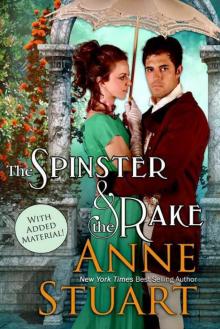 The Spinster and the Rake
The Spinster and the Rake Winter's Edge
Winter's Edge At the Edge of the Sun
At the Edge of the Sun Into the Fire
Into the Fire Night of the Phantom
Night of the Phantom Ritual Sins
Ritual Sins Darkness Before the Dawn
Darkness Before the Dawn Against the Wind
Against the Wind Ruthless
Ruthless The Catspaw Collection
The Catspaw Collection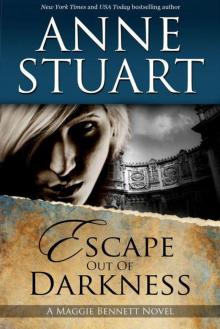 Escape Out of Darkness
Escape Out of Darkness The Widow
The Widow Shameless
Shameless Black Ice
Black Ice Breathless
Breathless Shadows at Sunset
Shadows at Sunset Falling Angel
Falling Angel Housebound
Housebound Cold as Ice
Cold as Ice The Wicked House of Rohan
The Wicked House of Rohan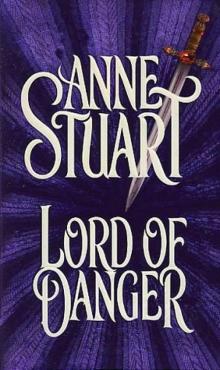 Lord of Danger
Lord of Danger The High Sheriff of Huntingdon
The High Sheriff of Huntingdon Wildfire
Wildfire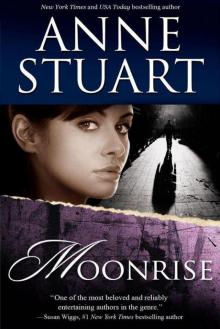 Moonrise
Moonrise The Demon Count's Daughter
The Demon Count's Daughter Date With a Devil
Date With a Devil To Love a Dark Lord
To Love a Dark Lord Driven by Fire
Driven by Fire Special Gifts
Special Gifts Ice Storm
Ice Storm Shadow Lover
Shadow Lover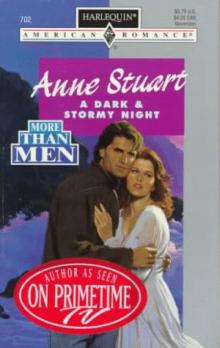 A Dark & Stormy Night
A Dark & Stormy Night Now You See Him...
Now You See Him... Lady Fortune
Lady Fortune Glass Houses
Glass Houses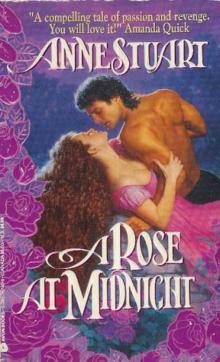 A Rose at Midnight
A Rose at Midnight Prince of Swords
Prince of Swords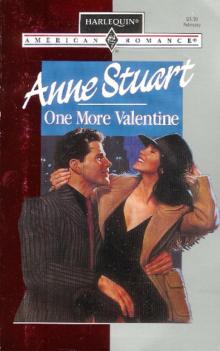 One More Valentine
One More Valentine Return to Christmas
Return to Christmas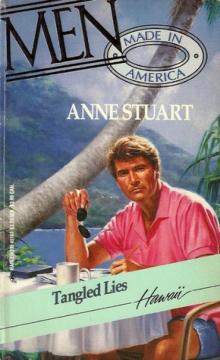 Tangled Lies
Tangled Lies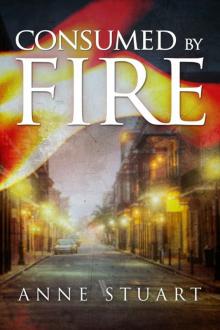 Consumed by Fire
Consumed by Fire The Fall of Maggie Brown
The Fall of Maggie Brown Wild Thing
Wild Thing Crazy Like a Fox
Crazy Like a Fox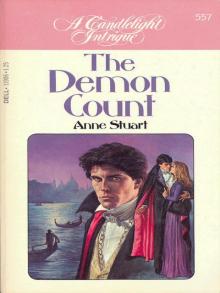 The Demon Count
The Demon Count Prince of Magic
Prince of Magic Wildfire (The Fire Series Book 3)
Wildfire (The Fire Series Book 3)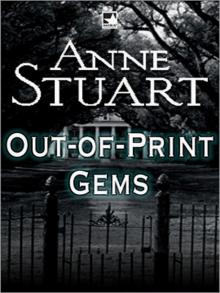 Anne Stuart's Out-of-Print Gems
Anne Stuart's Out-of-Print Gems Shadow Dance
Shadow Dance Under an Enchantment: A Novella
Under an Enchantment: A Novella Demonwood
Demonwood Blue Sage (Anne Stuart's Greatest Hits Book 3)
Blue Sage (Anne Stuart's Greatest Hits Book 3) Barrett's Hill
Barrett's Hill Angel's Wings (Anne Stuart's Bad Boys Book 5)
Angel's Wings (Anne Stuart's Bad Boys Book 5) Darkness Before Dawn
Darkness Before Dawn The Right Man
The Right Man The Houseparty
The Houseparty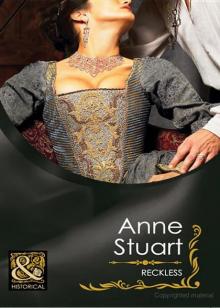 Reckless_Mills & Boon Historical
Reckless_Mills & Boon Historical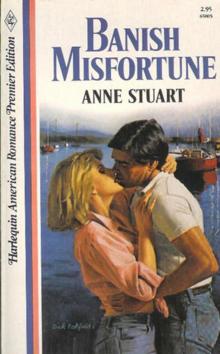 Banish Misfortune
Banish Misfortune Angel's Wings
Angel's Wings Chain of Love
Chain of Love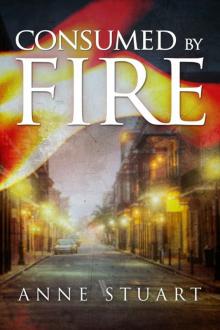 Consumed by Fire (The Fire Series)
Consumed by Fire (The Fire Series) Partners in Crime (Anne Stuart's Bad Boys Book 4)
Partners in Crime (Anne Stuart's Bad Boys Book 4) The Soldier, The Nun and The Baby (Anne Stuart's Greatest Hits Book 2)
The Soldier, The Nun and The Baby (Anne Stuart's Greatest Hits Book 2)